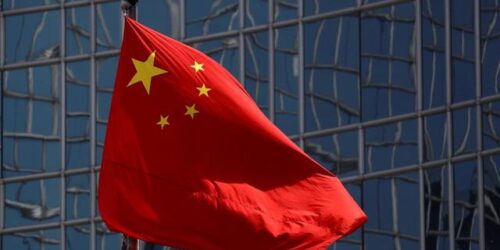At the Chinese Communist Party’s 20th National Congress in October, Chinese President Xi Jinping has been widely expected to be granted a third term as party leader in what would be an unprecedented event considering that CCP leaders generally only serve two terms. That fact alone has raised tensions for the particular National Congress–an event that only happens every five years. If granted a third term, a right that has already been made possible due to a constitutional amendment, Xi would serve as CCP leader for another five years.
Any doubt that Xi would be granted a third team as CCP leader seemed to have been put to rest by changes to both the state constitution of the People’s Republic of China and the constitution of the Communist Party of China.
Instead, the tension was set to be around who would be promoted within the party and who would be sent into retirement within the CCP’s Central Committee and the Politburo.
Then, on Saturday, completely unfounded rumors that appear to have been started and promulgated on social media and picked up by Indian media outlets almost exclusively suggested a coup was afoot and that Xi had been placed under house arrest, with the 20th Party Congress only a couple of weeks away.
Indeed, Xi faces a lot of challenges, from controversial and merciless COVID lockdowns to an economic slowdown that seems to be gaining momentum. However, there are no indications that a coup is in the offing, or that Xi is under house arrest. The rumors remain just that–rumors with zero verification or validation, and nothing more than a social media fantasy world and a disinformation campaign that ground to a halt shortly after it was launched.
Right after Xi returned from Uzbekistan where he attended the Shanghai Cooperation Summit (SCO), reports emerged that China had sentenced to death (with suspended sentences) two former ministers and sent another four officials to prison for life. This was followed by rumors of a coup that centered on General Li Qiaoming as a potential organizer. Wild rumors related the sentencing of these ex-officials to a coup plot, despite the fact that this was part of an anti-corruption push by Beijing.
Related: Belgium To Shut Nuclear Reactor On Friday Amid Energy Crunch
All of this leads back to the real battle going on ahead of the 20th Party Congress–who will get the top spots in the CCP Committee and Politburo. After the initial rumors circulated, further baseless rumors speculated that certain senior military figures were displeased that Xi was openly favoring Qiaoming over other more senior officials. More specifically, the rumors appeared to express fear and dissatisfaction over what some might view as Xi’s attempt to give the CCP more power over the military, in the form of the People’s Liberation Army (PLA).
Unfounded as the rumors are, there is no denying that this is a critical point in Xi’s solidification of power in the CCP, and tensions are and will remain high in the run-up.
Much is at stake. The CCP has to take full responsibility for the slowing economy, and Xi’s picks will determine the new strategy going forward.
Unemployment is growing, and in tandem, consumer spending power is declining. For 2022, Chinese economic growth is expected to come in at just over 3%, while official projections had earlier set it at 5.5%. That’s down from 8% 10 years ago, and the CCP bears this responsibility.
As this unfolds, Xi is on a collision course with Western powers whose investors he will also likely be trying to convince to keep their feet solidly grounded in China’s manufacturing mecca.
And while the rest of the world’s economies have largely brought COVID under control and learned to live with new cases without shutting everything down, Beijing’s zero-COVID policies are highly controversial.
This Sunday, a prominent commentator, Hu Xijin, openly criticized Beijing, calling for more comprehensive and transparent research. “The people must trust the state, but the state must also trust the understanding of the people,” Hu said, as reported by Reuters.
None of this will break China or cripple Xi. Instead, the weaknesses of the world’s economic powerhouse are simply flashing a bit brighter right now, and may continue to do so into mid-next year.
“Even as many officials, intellectuals and business leaders worry that President Xi Jinping is consolidating too much power around himself, the masses of the people support his continuing leadership,” writes David Mahon, Executive Chairman of Beijing-based Mahon China Investment Management Limited. “Xi may not bring economic relief immediately after the upcoming National Party Congress, but he knows he will have to offer a path to normalcy soon afterwards. Xi will heed the economic and social pragmatists around him, for he too is a pragmatist. China will stumble into next year, but it will not fall.”
As oil markets take their cue in large part from Chinese economic data, which speaks volumes about future demand, this is something to bear in mind.






